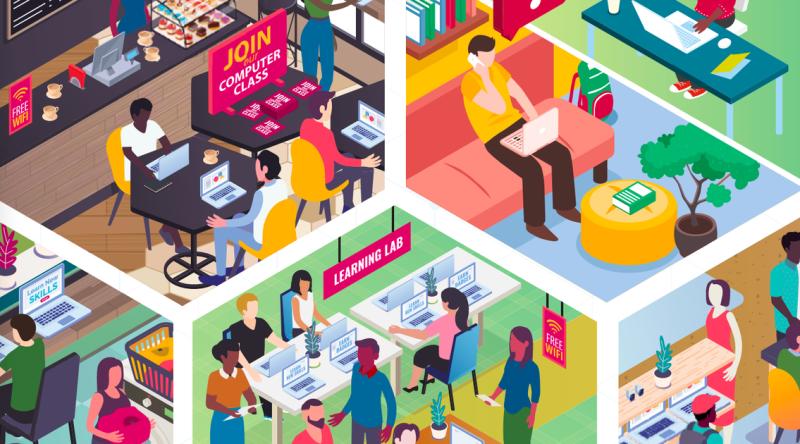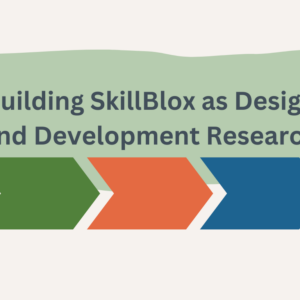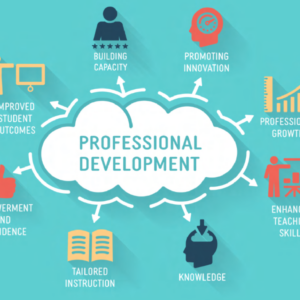Accelerated digital transformation of our schools, workplaces, and social services during the COVID-19 pandemic has helped raise public awareness around persistent digital divides and the inequities they exacerbate. Less known is that only 10% of the 32 million adults who need to learn to use a computer in the U.S. are able to access digital literacy classes. We have an equity imperative to collaborate, design, and scale new ways to support learner-workers to access the internet and devices and opportunities for digital skills development.
A new report by the Digital US coalition exposes how, at a time when technology innovation requires all of US to develop digital resilience, a lynchpin in developing a more equitable ecosystem for reskilling and ensuring economic recovery will be offering more accessible, just-in-time “digital navigator” services at scale.
Digital Navigators are trained staff or volunteers that help learner-workers (whether through phone or virtual hotlines or at drop-in locations) secure affordable internet access and/or devices and learn to use them to help meet their goals, such as to find and use an online learning program to reskill, to access critical services, or search for or apply for a job.
With funding from Walmart, the EdTech Center @ World Education is working with some of its Digital US Coalition partners, including National Digital Inclusion Alliance, Goodwill Industries International, and the National Association of Workforce Boards, to develop new models for offering “digital navigator” services; coordinate pilots that start in July to demonstrate impact and replicability; and develop training materials, an online resource hub, and a community of practice to facilitate national scaling.
“So as to ensure a more equitable digital future as digital learning and services increasingly are the new normal, we must ensure that support for developing digital resilience is radically accessible to all of US,” says Priyanka Sharma, Project Director with the EdTech Center @ World Education and Co-Director of Digital US.

The digital navigators will coach participants using methods designed to develop digital resilience, which the Digital US consortium defines as having the awareness, skills, agility, and confidence to be empowered users of new technologies and adapt to changing digital skill demands. For example, instead of just having a digital navigator share the list of steps to complete and accomplish an online task, they may first ask a learner-worker what they might try to do, make sure learner-workers understand the logic behind a particular step, and focus on developing the confidence to try new technologies.
Digital navigator services may also be provided by existing staff in diverse social service, health, financial, and education organizations as well as in companies. For example, a business or organization could embed digital navigator services into its HR and L&D departments to ensure that all its employees have personalized support to secure affordable access to the internet and devices and develop foundational skills to navigate online programs for learning and managing operations.
“Few organizations receive funding specifically for digital inclusion. But whether they are a parent center at a school, a civic engagement organization, a health clinic, or an employer, organizations must recognize that integrating supports for digital inclusion into their existing programs is critical to improving outcomes.” says Amy Sample Ward, CEO, NTEN, a Digital US Coalition partner.
Although digital navigator services have existed in various forms before— some libraries, nonprofits focused on digital inclusion have been offering support services for some time, what is novel is a coordinated effort by the EdTech Center @ World Education, Goodwill Industries International, National Digital Inclusion Alliance and other Digital US partners to formalize this just-in-time virtual delivery model to solve for both digital access as well as learning and upskilling, and at scale.
“For the new learn and work ecosystem to be more equitable, we must figure out the long-term solution so that digital navigation services become a core, funded delivery model and that the systems are in place to ensure that they are effective and affordable at scale,” says Alison Ascher Webber, Director of Strategic Initiatives at the EdTech Center @ World Education and Co-Director of Digital US.
For more information about the Digital Navigators project, contact Priyanka Sharma at priyanka_sharma@worlded.org.




